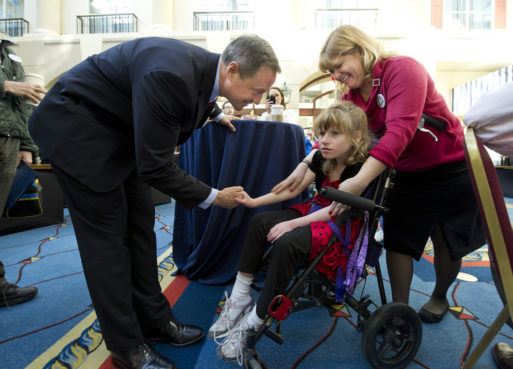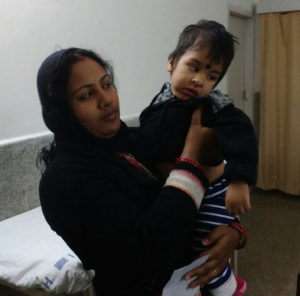
Credit: Flickr.com
In the United States, most people who have serious developmental disabilities receive care from their loved ones at home. But when a caretaker dies, they often have no one to care for them. They typically go to an institution, where they may languish for years.
The trauma of this experience can be immense for the survivor. Many times, a parent will care for a child who has a developmental disability from infancy through middle age. (Sometimes it’s even longer, depending on how long the caretaker lives.) In that time, people develop routines and strong bonds of trust. After the death of a caretaker, both children and adults with developmental disabilities can feel distraught and confused. Many simply can’t adapt to institutional life.
Few Resources for Families in Need
Beth Munro is 68 and single-handedly cares for her daughter, Caroline. In an interview with PBS, she explains that Caroline, who is 22, functions at the level of a preschool child. She has both cerebral palsy and developmental disabilities. What’s more, she has refused to eat unless her mother feeds her since she was 4. Like many caretakers, Beth doesn’t know what will happen to her daughter when she dies.
In an ideal scenario, families like the Munros could get respite care from Medicaid. This would allow them to slowly introduce more caregivers to the person in need and ease the burden of caring for them on their own. It would also help the person with a disability transition more easily when the time comes.
However, few states have the funding or personnel required to provide relief for every family in need. As a result, families wait years and years for more help. Only when a caretaker dies and there is no one to take over do they move to the top of the waiting list. Even then, there are often not enough resources to go around. With no options available, many people with severe disabilities are shipped off to mental hospitals, where they live for many years.
A Call for Federal Funding

Credit: Flickr.com
According to disability policy expert Susan Parish, many parents of children with developmental disabilities hope their children die before them, thus sparing them the trauma of institutional life. They worry constantly about what will happen to their children after they die.
Some states are taking steps to solve this problem. For example, Tennessee guarantees appropriate care to any developmentally disabled person with a caretaker over 75. However, experts such as Parish say that state efforts aren’t enough. Without federal funding, they say, people will receive different levels of care depending on where they live. And many people will receive little care at all.
Parents of severely disabled children deserve the comfort of knowing their child will be cared for after they are gone. Sadly, for far too many families, that is simply not the case.

 People with Developmental Disabilities Have Few Options When Caretakers Die
People with Developmental Disabilities Have Few Options When Caretakers Die


 The Spiritual Symbolism of Cardinals
The Spiritual Symbolism of Cardinals
 Meaning-Focused Grief Therapy: Imaginal Dialogues with the Deceased
Meaning-Focused Grief Therapy: Imaginal Dialogues with the Deceased















